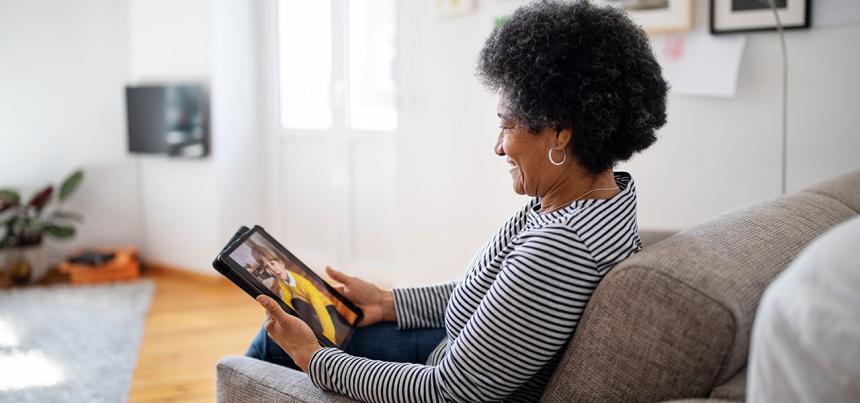Protect Your Cognitive Health During COVID-19 Pandemic

During the COVID shutdown, most people focused on following local guidelines, maintaining a strong immune system, controlling chronic conditions and getting food and supplies. But there is an area that many have overlooked -- preserving cognitive skills.
Research shows that extreme social distancing measures similar to those taken during the SARS, Ebola and H1N1 outbreaks could cause short-term and long-term problems such as stress, insomnia, emotional exhaustion and substance abuse.
A survey recently conducted by MDVIP and IPSOS echoed these mental health findings:
- 64 percent of survey participants believe the pandemic triggered feelings of depression and/or anxiety.
- 58 percent found that it affected their sleep habits and 57 percent claim it has altered their mood.
- 54 percent reported a lack of interest in usual activities and 51 percent feel withdrawn from loved ones since the shutdown.
It’s probably fair to say that back in March, most people didn’t factor the toll shutdown might have on their cognition. If you’re retired, living alone and required to stay at home, you may have had to give up your social circles, volunteer activities, religious services and recreational activities. That’s social isolation and it’s associated with a 50 percent increased risk in dementia, according to the Centers for Disease Control and Prevention (CDC).
“Right now, we’re being asked to practice social distancing. But If you are living alone, it can easily lead to social isolation,” says Bernard Kaminetsky, MD, medical director, MDVIP. “Studies have connected social isolation with cognitive decline.”
A 2013 study published in Psychosomatic Medicine found that loneliness and isolation were associated with reduced cognitive function among aging adults. Isolation and loneliness were linked with greater impairment of delayed recall among participants with lower levels of education.
Unfortunately, as the pandemic has lingered, we’re seeing increasingly just how damaging isolation can be for brain health. For example, more than 60 percent of MDVIP’s survey participants reported having a friend or loved one that began experiencing cognitive decline since the beginning of the pandemic.
The good news: 87 percent of survey respondents have taen steps to maintain their brain and emotional health since stay-at-home orders first began. About 47 percent of survey respondents spend some time outdoors and kept in close contact with loved ones. Eight percent reported they sought professional help.
How do you socially distance without socially isolating? Here are a few tips from Johns Hopkins Bloomberg School of Public Health:
- Spend 15 minutes each day writing to or talking with a loved one. Just 15 minutes can help us feel connected.
- Stay on top of your social media accounts and emails. It’s a great way to maintain relationships, even if it’s virtual.
- Find ways to help others. Maybe you call to check on a friend or even acquaintance. Perhaps you drop off food for a neighbor. Figure out how to be there for others. It will help give you a purpose while building a connection.
Other helpful suggestions:
- Participate in lives virtual events. Religious services, entertainment and educational events over Zoom, Facebook Live, YouTube and other live streaming platforms can keep your mind working and give you an opportunity to socialize.
- Organize a watch party. Find a movie being broadcasted on Netflix, cable or network television and gather people to a watch it via social media, your phone or a virtual movie theater.
- Practice mindfulness whether it’s meditating or taking a yoga class. These activities can help calm your mind. Try these activities either through a virtual class. Many professional with their own mobile apps and social channels such as YouTube, Instagram (IGTV) and Facebook are offering free classes. You can also try these activities with a friend – over the phone or via video chat.
“Of course, keep your doctor in the loop,” says Kaminetsky. “They may be able to find creative ways to keep your mind active and socially connected to others or refer you to a specialist.”
Don’t have a doctor? Consider partnering with MDVIP. MDVIP doctors have the time to work with you to help you develop a personalized wellness program. Find a physician near you and begin your partnership in health »


